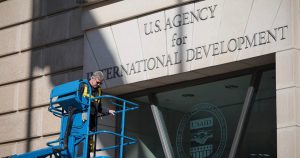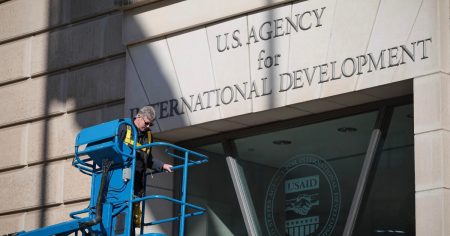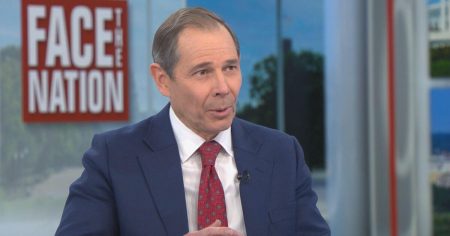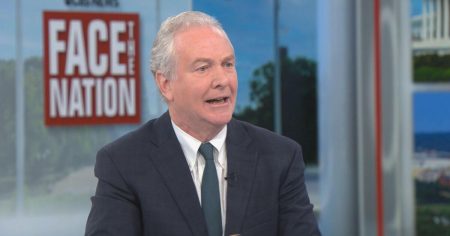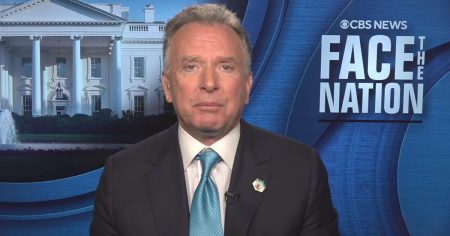Mass Layoffs Hit the IRS: A Human Perspective on a Turbulent Time
The Day the Layoffs Came: A Scene at IRS Headquarters
Thursday marked a somber day for thousands of IRS employees across the United States as the agency carried out widespread layoffs. At the IRS headquarters in Washington, D.C., the emotions were palpable. Many workers left the building for the last time, carrying heavy suitcases and duffle bags filled with personal belongings. One of the laid-off employees, who wished to remain anonymous, shared his story with ABC News. He had been hired to modernize the IRS through data analytics and automation, tasks that were meant to make the agency more efficient. However, the irony was not lost on him: his work was aimed at improving the IRS, yet he found himself among those being let go.
This employee expressed the shock and disappointment felt by many of his colleagues. “The understanding was that I was brought in to make things more efficient,” he said. The layoffs, he noted, came as a surprise, especially since the federal government’s workforce cuts, led by Elon Musk’s Department of Government Efficiency, were supposed to streamline operations. Instead, the firings left many questioning the logic behind the decision. “You can only imagine with so many people being let go and so much information and potential being lost,” the employee remarked. “People probably can expect disturbances” during this tax filing season.
The Personal Toll of Layoffs: Stories of Loss and Uncertainty
The emotional impact of the layoffs was evident as employees processed the news. One woman, wiping away tears, described how the cuts were “gutting” the IRS. She was not among those laid off but feared for the future of the agency. “So much of the IRS workforce is older and near retirement age,” she noted, adding that the probationary workers who were let go represented the “best and the brightest” of the future. Their departure, she said, would mean less enforcement and fewer resources to address taxpayer concerns.
Another fired employee, who was just three weeks shy of completing his probationary period, shared his frustration. He had joined the IRS to “help our country fight bad guys,” but the layoffs left him questioning the reasoning behind the decision. He disputed claims by Elon Musk and former President Donald Trump that the firings would improve efficiency. “If you’re measuring efficiency by productivity or morale, certainly not,” he said. “The people I worked with were incredibly hardworking, and losing us will only hurt the agency’s mission.”
The Bigger Picture: What the Layoffs Mean for the Future of the IRS
The layoffs are part of a broader effort to reduce the federal workforce, with the IRS being one of the hardest-hit agencies. Sources revealed that more than 6,000 probationary employees were let go nationwide, accounting for about 6% of the IRS workforce. Hundreds of jobs were cut in states like Texas, New York, Georgia, Florida, Tennessee, and Pennsylvania. While the exact number of layoffs in Washington, D.C., was not disclosed, one source confirmed that over 100 employees were terminated, including more than 60 from the headquarters.
The layoffs have raised concerns about the long-term impact on the IRS’s ability to function effectively. Employees who were let go emphasized the importance of their roles in modernizing the agency’s infrastructure and streamlining compliance work. The fired worker who spoke to ABC News noted that his work had “modernized” IRS data systems, which he believed would have benefited taxpayers and improved efficiency in the long run. Now, he fears that the agency will struggle to keep up with the demands of tax season and beyond.
A Loss of Institutional Knowledge and Innovation
The layoffs also represent a significant loss of institutional knowledge and innovation. Many of the probationary employees who were let go were young, talented professionals brought in to bring fresh perspectives and technical expertise to the agency. They were part of a new wave of hiring aimed at addressing the IRS’s aging workforce and outdated systems. Now, that investment in the future has been cut short.
One employee, who had previously worked in nanotechnology, biotechnology, and engineering before joining the IRS, described his time at the agency as the most fulfilling of his career. “I felt the most motivation and mission while working for the federal government,” he said. His passion for public service was evident, but so was his disappointment in the decision to let him go. “I wish there was more thought put into the long-term impact that some of these decisions will have on not just the American taxpayers but the American people,” he remarked.
The Road Ahead: Uncertainty for Taxpayers and Employees Alike
As the layoffs take effect, both current and former employees are bracing for the challenges ahead. The fired workers expressed concern about the potential disruption to this year’s tax filing season, as well as the agency’s ability to enforce tax laws and assist taxpayers in the future. “This is not just about losing jobs,” one employee said. “It’s about losing the people who were supposed to make the IRS better.”
For those who remain at the IRS, the mood is somber. The layoffs have left many feeling demoralized and uncertain about their own futures. The agency’s ability to retain and attract top talent has been called into question, as has its commitment to modernization and efficiency. As one employee noted, the layoffs send a clear message: “The people who were supposed to be the future of the IRS are no longer here.”
In conclusion, the layoffs at the IRS are more than just a numbers game. They represent a loss of talent, innovation, and institutional knowledge that will be difficult to replace. For the employees who were let go, the decision has left them feeling betrayed and uncertain about their next steps. For the American people, the layoffs raise questions about the future of the IRS and its ability to serve taxpayers effectively. As the agency moves forward, one thing is clear: the impact of these layoffs will be felt for years to come.

